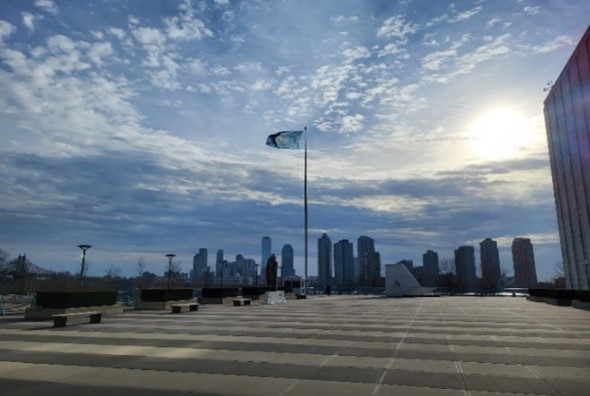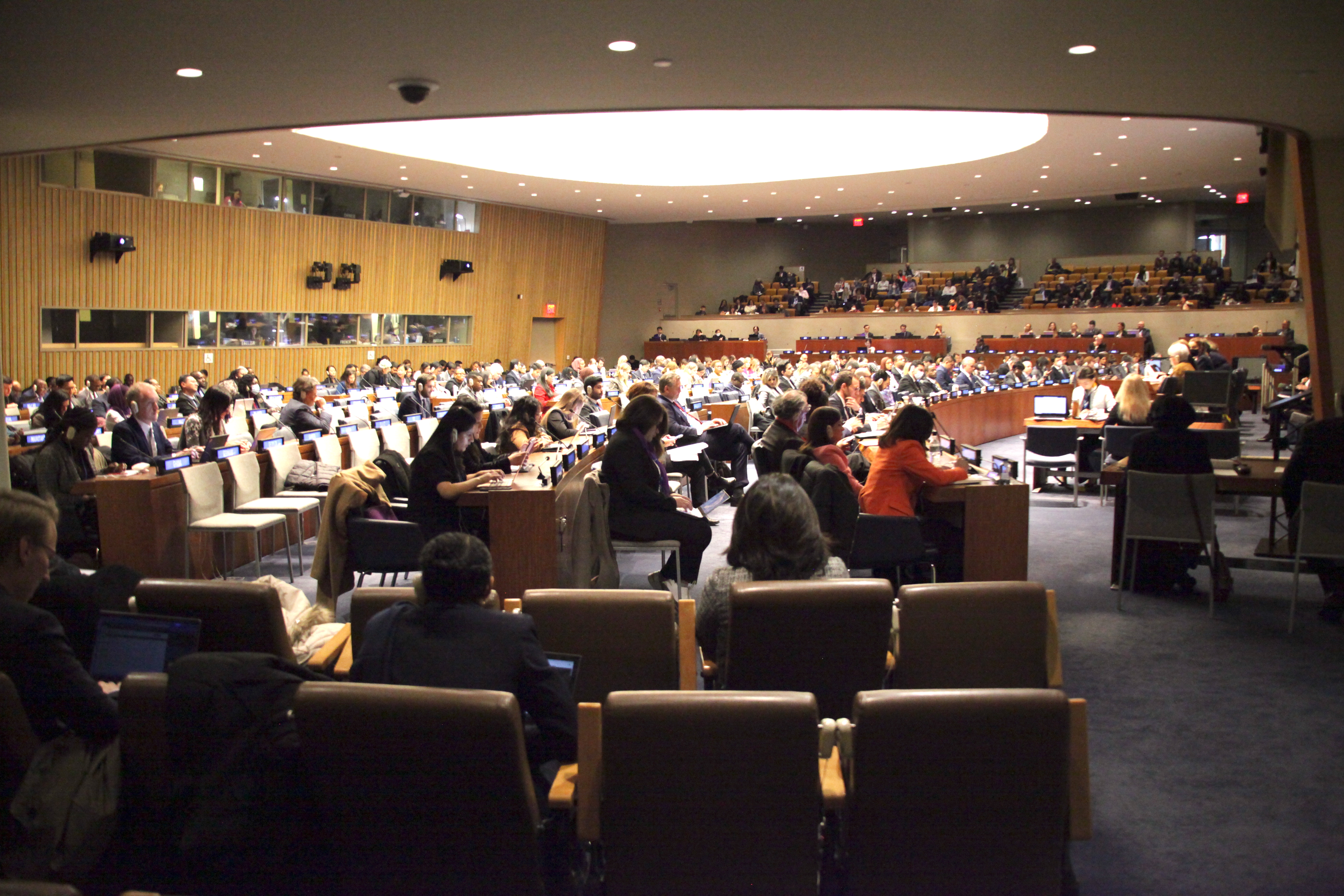
It will soon be a month since I arrived in New York. From the 6th -15th February, I had the opportunity to attend the 61st Meeting of the Commission on Social Development (CSocD61) at the United Nations in New York. New York City is a very beautiful city, but the United Nations is the most fascinating place in New York.
Walking through a building I remember back in 2019 and seeing the rooms frequently shown in the news felt incredible. But the location wasn’t the only highlight of this event.
The priority theme of the UN CSocD 61st event was "Full and productive employment and decent work for all and reduced inequalities.”
I believe I learnt a lot more by attending the meetings for the second time. I did not just hear much diplomatic speech, but also improved in reading between the lines (Why does the USA argue the absoluteness of the right to life for example? Because of Capital Punishment maybe?) Sometimes the speeches of the representatives felt like a sad joke, like Qatar talking about the great social security system for migrant workers, or a great number of member states blaming the pandemic for nearly all their social problems. I quickly learnt to differentiate between the states talking about general policies and values, those enumerating different laws and programs, and those that did not just name these actions, but also mentioned detailed results.
It was also interesting to see how the states dealt with the war in the Ukraine; some calling it “Russia’s war of aggression against Ukraine”, others simply talking about “geopolitical tensions,” or ignoring it completely. But also, in other regards states attacked each other directly, like Cuba blaming ongoing sanctions for its social problems, and African states calling out on developed states, criticizing promises of financial aid without many consequences.
Especially the last day, when the draft resolutions were adopted and member states gave their statements regarding them, it was obvious that the Commission meetings I attended are mainly meant for public purposes. The real work and more consequential negotiations, like drafting these resolutions, happened where the public and we NGOs (Non-Governmental Organizations) cannot watch and listen. Nevertheless, I am glad they did take place at all. Of course, there are things in the resolutions that the Civil Society would have preferred differently, but there is a certain influence of the Civil Society on the reports. In our call to action, Civil Society shared tangible and cross -cutting recommendations that can make our vision of a world of true prosperity without poverty, inclusion, and justice for all a reality.

One of the best parts of this event, however, was the Monday in the second week, when a good number of youth representatives could read out a statement on behalf of the NGO they represented to the member states. It was a rewarding experience for many of them as they read out their statement for the first time and without stumbling at such an event in the UN keeping to the 3-minute limit. It was also good to interact with other NGO representatives who I met during the past week and who also delivered statements.
I really made several friends at the Conference, with delegates from other NGOs who represented their various countries. Having the common goal of convincing the member states to act on their promises really connected us, and it felt like a great team. I met many truly inspiring people with great stories. That also made the side events very interesting; they were less political regarding well-articulated promises and more ambitious by showing clear problems, challenges and possible solutions.
Rita Pinto rscj
